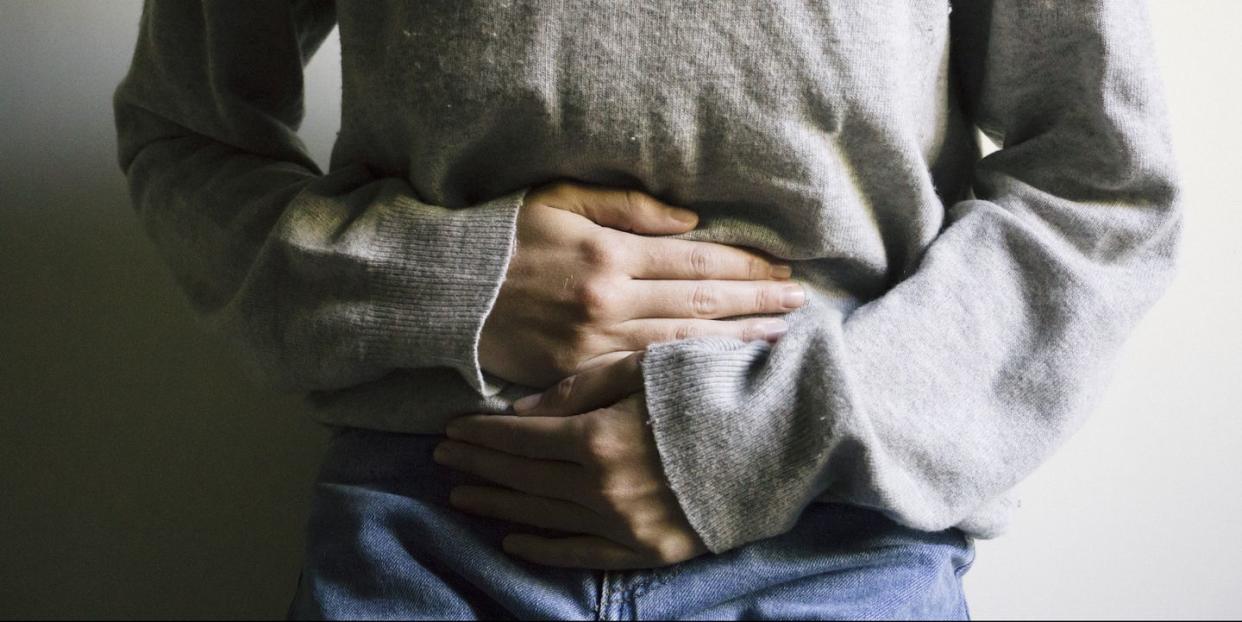Everything You Need To Know About UTIs

Urinary tract infections (UTIs) are a common yet painful reality for many women and men.
New data reported on Medical News Today has shown that more than half of all women (60 per cent) will have at least one UTI in their lifetime, with more than 40 per cent of men and women experiencing recurrent infections.
While UTIs are common for all ages, some anatomical differences mean that women suffer from them more than others.
Here's everything you need to know about UTIs, from why they occur to best forms of treatment:
What are UTIs?
According to the NHS UTIs are infections which affect the urinary tract 'including your bladder (cystitis), urethra (urethritis) or kidneys (kidney infection)'.
The main cause is bacteria from faeces entering the urinary tract. Sex, pregnancy, kidney stones, an enlarged prostate gland, urinary catheters, a weakened immune system, poor hygiene and a lack of fluids are also common causes of UTIs.

In order to prevent UTIs returning, the NHS advises individuals to wipe from front to back after going to the toilet, keep the genital area clean and dry, drinking plenty of fluids (preferably water), urinate as soon as possible after sex, and wash the skin around the vagina with water before and after sex.
What are the symptoms of a UTI?
Upon contracting a UTI, there may be a constant urge to urinate, and when doing so, symptoms such as painful stinging and burning are likely to occur.
Other symptoms include:
Urine that looks cloudy
Blood in the urine
Lower abdominal pain or pain in the back
A high temperature
A very low temperature (below 36C)
In older individuals, a UTI may result in changes in behaviour, such as acting confused or agitated.
Nurse Leanne Gray, who suffers from UTIs, recently told the BBC: 'It can completely alter your life, some days I am housebound.'
According to the authors of the recent paper published on PubMed.gov, studies have shown that 10 to 25 per cent of people with a UTI have contracted an infection with bacteria that are resistant to the most common antibiotic treatment.

If left untreated, the infection can travel to the kidneys and into the bloodstream, leading to kidney infection and urosepsis, which is a form of sepsis that has mortality rates of 30–40 per cent.
In January this year James Bond actor Tanya Roberts, who starred in A View To Kill, died after contracting the infection before it developed into sepsis, aged 65.
However, in most instances, UTIs can be treated effectively, without serious damage, and won't be critical.
Are women more likely to catch UTIs?
Yes. While common across all ages, biological differences such as women having shorter urethral openings can make it easier for bacteria to pass through the bladder in a shorter amount of time.
Pregnant women, who experience changes in their urinary tract, are likely sufferers of two kinds of UTIs: cystitis, a more common, mild type which is an inflammation of the bladder; and pyelonephritis, a severe case infecting the kidneys.

What is the treatment for a UTI?
Taking antibiotics over a short period of time will get rid of most infections, however antibiotics are becoming increasingly more resistant to UTIs.
According to the World Health Organisation antibiotic resistance is 'one of the biggest threats to global health, food security, and development today'. The WHO says resistance can lead to longer hospital stays, higher medical costs and increased mortality.
If a UTI continues to return, the patient may be required to provide a urine test, be prescribed different antibiotics or recommended alternative treatments.
The NHS suggests patients take paracetamol up to four times a day to reduce pain and a high temperature and that they rest and take enough fluids so they can pass urine frequently throughout the day.

'It may also help to avoid having sex until you feel better,' its website adds. 'You cannot pass a UTI on to your partner, but sex may be uncomfortable.'
What are the most common misconceptions about UTIs?
There is a myth that cranberry juice can cure UTIs.
'Taking cystitis sachets or cranberry products has not been shown to help ease symptoms of UTIs,' notes the NHS.
Instead, people are advised to drink plenty of fluids and take painkillers.
You Might Also Like


